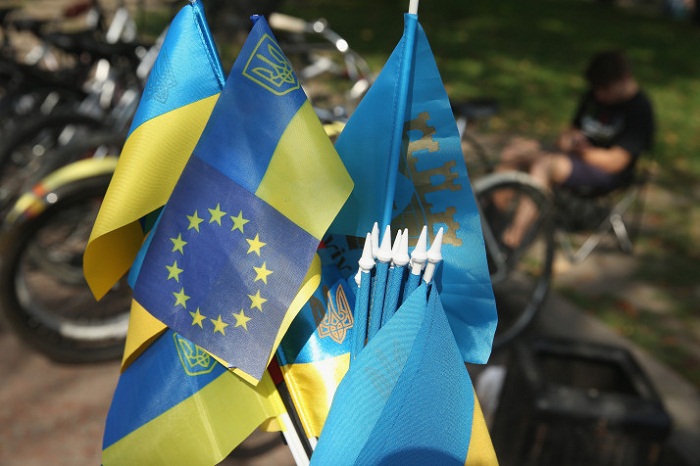The court struck down a March 2014 decision by the Council that froze the assets of Andriy Portnov and imposed an EU travel ban. The judges blasted the EU for relying solely on accusations from the Public Prosecutor’s Office of Ukraine, without corroborating the charges.
The letter from the prosecutor, the court noted, failed “to provide any details concerning either the facts alleged against Mr. Portnov or his responsibility in that regard.”
The ruling is more symbolic than anything because Portnov, an advisor to former Ukrainian president Viktor Yanukovych, was removed from the sanctions list in March. Still, the consequences of the ruling could be far-reaching.
Like Portnov, other blacklisted oligarchs have appealed to EU courts, complaining they have been sanctioned solely based on a recommendation from Ukraine’s public prosecutor.
One of them is Mykola Azarov, Ukraine’s prime minister from 2010-2014, who has challenged his inclusion on the EU sanctions list. His lawyer, Alexander Egger of the Austrian law firm Lansky, Ganzger + partner, said the ruling will have “consequences on other pending cases” and that the EU institutions needed to “study their cases more carefully.”
The EU’s sanctions regime is a major plank of its efforts to contain the Russian-inspired violence in eastern Ukraine.
The judgment could strain relations between Europe and the U.S. government.
The U.S. government is “increasingly concerned about weaknesses in the European sanctions mechanism,” Anthony Gardner, the U.S. ambassador to the EU, warned in July. In a speech earlier this year, Gardner expressed concern that Brussels had yet to develop “records that will withstand rigorous judicial scrutiny.”
The Council had justified including Portnov on the list last year by describing him as “subject to criminal proceedings in Ukraine … in connection with the embezzlement of Ukrainian state funds and their illegal transfer outside Ukraine.” But the court concluded Portnov was at the time only the subject of a preliminary investigation.
Monday’s judgment elicited praise from Oleksandr Klymenko, Yanukovych’s minister for taxation, who was also included on an EU sanctions list following accusations of embezzlement. He is appealing.
The Council “has relied solely on information from the Ukrainian Prosecutor General with no transparency, no evidence, no hearings, no due process, no presumption of innocence,” said Klymenko. He accused EU governments of “lending a hand to the political-cleansing of Ukraine by the current administration.”
Monday’s ruling is the latest in a string of defeats for the EU over sanctions. Judges have annulled sanctions leveled against Hamas, an EU-designated terrorist organization, the Tamil Tigers, a Sri Lankan militant group also listed as a terrorist organization, and, earlier this month, the Belarusian owners of Dynamo Minsk football club.
The Commission recalled that Portnov had been removed from the EU sanctions list in March and said it and the Council were “studying carefully the ruling.”
“They will reflect on the options open to them and will, in due course, decide on any appropriate remedial action,” said a Commission spokesperson.
More about:
















































